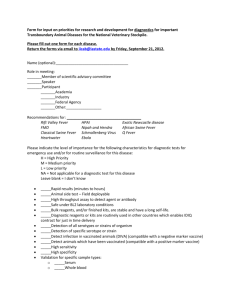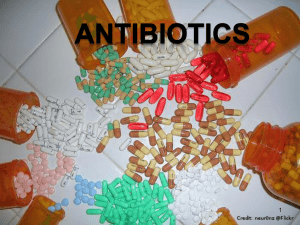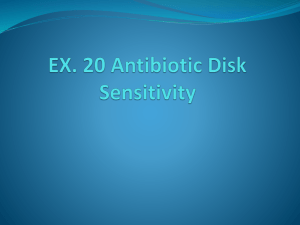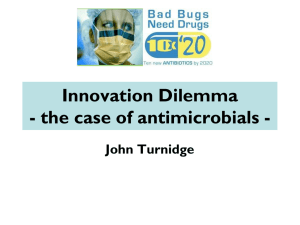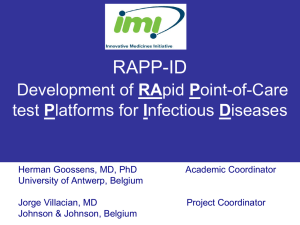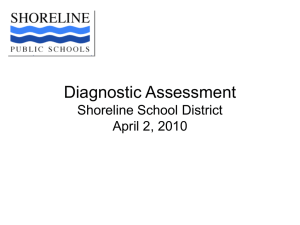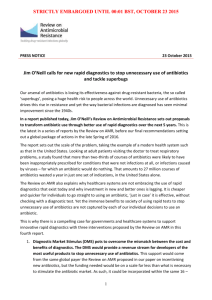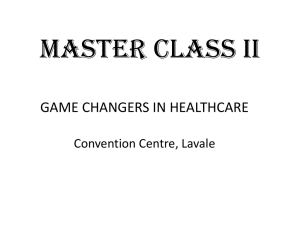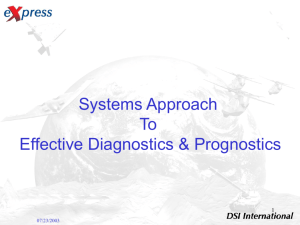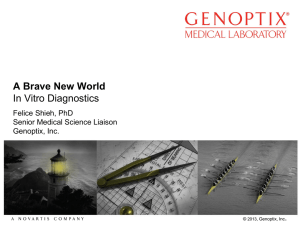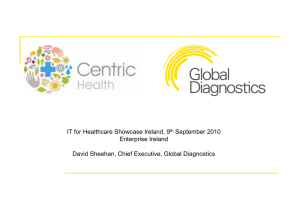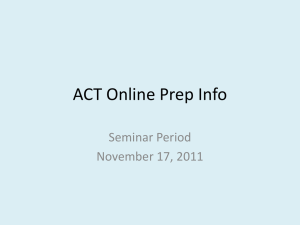here - Cubist Pharmaceuticals
advertisement
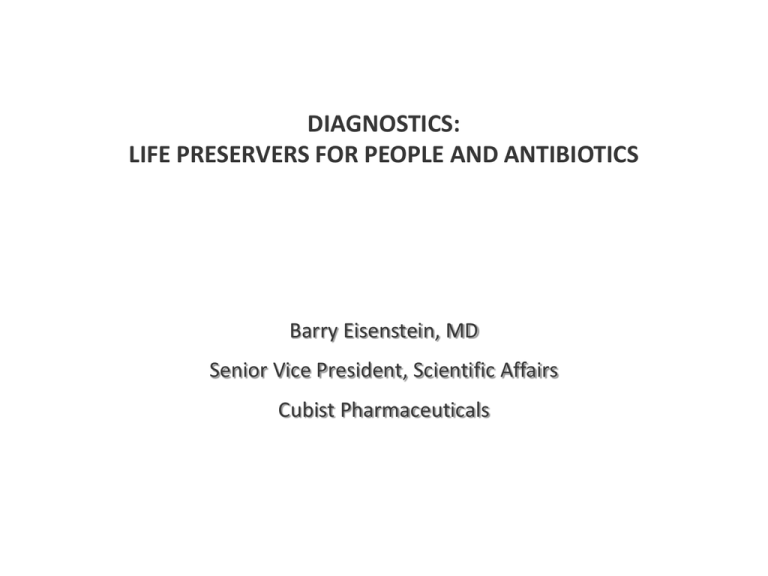
DIAGNOSTICS: LIFE PRESERVERS FOR PEOPLE AND ANTIBIOTICS Barry Eisenstein, MD Senior Vice President, Scientific Affairs Cubist Pharmaceuticals FIRST: IS THIS A BACTERIAL INFECTION? Will this diagnostic innovation curb overuse and eliminate/reduce misuse of antibiotics? One of many examples … 2 THIS IS HOW THE LONGITUDE PRIZE IS LOOKING AT IT Criteria for entry evaluation Entrants choose scope: (type of diagnostic and what infection) • • • • • Differentiate between bacterial vs. viral infections Distinguish between bacterial classes: G+ vs GIdentify specific bacterial strain and genus Specifies resistance profile and AB susceptibility Must be point-of-care • level of resource required to use the diagnostic • level of expertise required to administer it and • time taken to provide result (the shorter, the better) 3 TIMING IS EVERYTHING WITH ABX INTERVENTION With compliments to John Rex’s “The Golden Hour” • Gaieski DF, Crit Care Med 38: 1045-53, 2010 • When analyzed for time from triage to appropriate antibiotics, there was a significant association at the <1 hour time cutoff • Mortality 19.5 v. 33.2%; odds ratio, 0.30 [95% confidence interval, 0.11-0.83]; p = .02 • Kumar, ICAAC 2012 • “We see step-wise increases in mortality at 15-minute intervals” 4 Rex JH - 2014-09-23 FDA-NIH Overview of diagnostics & development … IN CLINICAL AND CLINICAL TRIAL SETTINGS Prescribing antibiotics is a puzzle with extreme time limitations for the sickest. Rapid diagnostics could result in: • • • • Targeted patient use Better outcomes Being better armed for the likely potential of bacterial outbreaks More appropriate use, less resistance Antibiotics trials cost more and take longer than they should. Rapid diagnostics could result in: • • • • 5 Targeted patient enrollment (right pathogen) Faster enrollment + reduced contamination with prior use Optimized spending that can be re-invested in discovery Maybe superiority trials could be possible someday DIAGNOSTICS CAN MAKE A DIFFERENCE … BUT: We could have the greatest, most informative diagnostic test available tomorrow, but if the results can’t be acted on at the point of and time of care, the key issue of mortality will not be addressed • Access to a rapid result is critical • Reimbursement continues to be an issue for the therapeutic, but even more so for the diagnostic Unlike oncology, we are not talking about “companion diagnostics” where reimbursement and use of diagnostics and therapeutics are coupled • Until we have true rapid diagnostic tools, we MUST use empiric therapy - remember the clock is ticking • Traditional culture and susceptibility testing will ALWAYS have a role 6 MORE ABOUT THE ECONOMICS (AND THE ECOLOGY) • Pressing need to unite economic interests of various stakeholders to realize system-level benefits to hospitals and payers • Quick and appropriate antibiotic use leads to lower mortality rates, shorter hospital stays and decreased costs • Conversely, appropriate antibiotic restriction has profound environmental benefits and reduces emergence of resistance. Good comes in both directions when you use the right drug at the right time for the right duration – the true meaning of “antibiotic stewardship” • Appropriate antibiotics and related ID diagnostics should be considered for reimbursement based on value each offers the system • On September 19th Cubist submitted its position on reimbursement enhancements to the U.S. House of Representatives Committee on Energy and Commerce. You can read the full document in the News section of cubist.com 7 30-YEARS OF DATA. WHERE HAS INNOVATION THRIVED? Diseases Cost of Therapy $50K Measured By $100K +$200,000 Orphan disorders $100,000 Select new cancer Annual costs Course of therapy $50,000 Annual costs $100,000+ Course of therapy Multiple sclerosis Hepatitis C $200K Lupus $35,000 Annual costs Antibacterial Infections $3,000 Course of therapy For illustrative purposes only. Investors have rewarded companies working in markets with high & predictable prices – while antibiotics have not kept pace … Yet infections, because of resistance, drive a need for never-ending innovation 8 THIS MATTERS: FOR REAL PEOPLE IN THE REAL WORLD With compliments to Charlene Reed Societal awareness is improving, but remains low. We are talking about a global pandemic … why isn’t anyone addressing this? • Anyone • Anywhere • Anytime 9 • Not a chronic condition • Not specific to a body area
